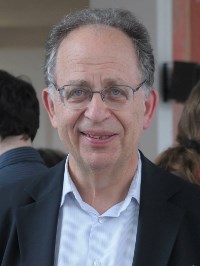Special guest speakers at the First Conference for Young Researchers in Quantum Technology include:
Eleni Diamanti
Title of talk:
Practical secure quantum communications

Eleni Diamanti is a CNRS researcher at Sorbonne University in Paris, France. She received her Diploma in Electrical and Computer Engineering from the National Technical University of Athens, Greece, in 2000 and her PhD in Electrical Engineering from Stanford University, USA, in 2006. She then worked as a Marie Curie post-doctoral scholar at the Institute of Optics Graduate School in Palaiseau, France, before joining the CNRS in 2009. Her research focuses on quantum cryptography and on the development of photonic resources for the emerging quantum networks. She has been awarded a European Research Council Starting Grant, and she is the vice president of the Paris Centre for Quantum Computing, steering committee member of the French national network on Quantum Technologies, and elected member of the Board of Stakeholders of the European Commission Public Private Partnership in Photonics.
Michael P. Zwolak
Title of talk:
Atomic devices to probe and simulate many-body transport phenomena

Michael Zwolak is a Project Leader in the Nanofabrication Research Group of NIST (National Institute of Standards and Technology). He received a B.S. in Chemical Engineering from Virginia Polytechnic Institute and State University and a Ph.D. in Physics from the California Institute of Technology. He subsequently was the Feynman Fellow at Los Alamos National Laboratory and then joined the faculty of the Department of Physics, Oregon State University. His past research set the foundations for rapid DNA sequencing with electronic sensors embedded in nanofluidic devices, determined the role of amplification in the quantum-to-classical transition, and provided the theoretical tools necessary to assess heating and fluctuations in nanoscale electronics. He also developed computational algorithms to efficiently simulate many-body, open quantum systems by exploiting matrix product states. Michael's research in the CNST focuses on determining the underlying principles of nanomanufacturing via self-assembly, quantifying the behavior of catalytic processes at the nanoscale, predicting properties of nanofluidic devices, and developing innovative computational approaches - both in and out of equilibrium - to guide and interpret next-generation measurement techniques.
Joseph Zyss, Chairman of the Awards Committee

Professor Zyss studied science and engineering at Ecole Polytechnique (1969-72) and Ecole Nationale Supérieure des Télécommunications (73-75), and earned a PhD in physics at Pierre et Marie Curie University in Paris (1982). He next worked at the Centre National d'Etudes des Télécommunications where he developped molecular and polymer based nonlinear optics and related photonics applications. Since 1997 has been physics professor at the Ecole Normale Supérieure Paris Saclay (now emeritus), where he subsequently founded and directed the Laboratory for Molecular Quantum Photonics (1998 to 2006)and the D'Alembert Institute (2002-2014), a federation of four CNRS research laboratories in physics, chemistry electrical engineering and life sciences targeted towards advances in molecular photonics and biophotonics. In 2008 he founded and has been co-directing a joint laboratory between CNRS and the Weizmann Institute in NanoBio Sciences (2008 – 2015) as well as emeritus at ENS Cachan. Dr. Zyss' personal research over the past three decades has spanned different domains of light-matter interactions in molecular media. He has authored or co-authored more than 400 research papers and has pioneered research in various aspects of nonlinear molecular photonics including advanced algebraic and group theory considerations that have geared molecular engineering into the larger frame of multipolar interactions, devices for information technologies, advanced nonlinear imaging techniques such as polarization resolved second-harmonic generation and Pockels linear Electro-optic Microscopy. Among other distinctions throughout his career, he has been awarded a Meierof fellowship from the Weizmann Institute, has been the recipient of the IBM and Yves Rocard prizes of the French Physical Society and received in 2010 the French German Humboldt-Gay Lussac award. He is a fellow of the Optical Society of America.